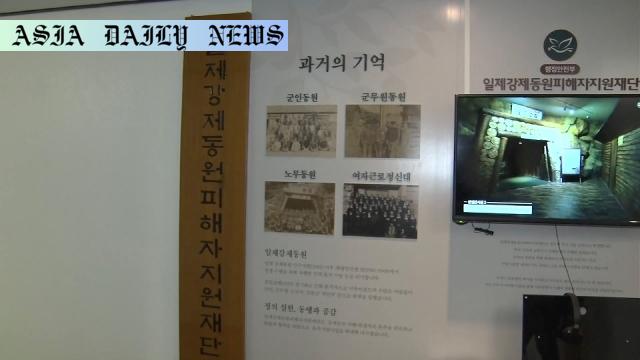Wartime Labor – Another bereaved family in South Korean wartime labor cases agrees to settlement, receiving 250 million won.

Introduction to South Korea’s Wartime Labor Settlement Plan
The issue of wartime labor has remained a contentious topic in East Asia, specifically between South Korea and Japan. This stems from individuals and families who claim they or their relatives were forced into labor during Japan’s colonial rule over Korea. Despite this dark chapter in history, recent settlement developments are seen as a step toward resolution.
A Bereaved Family Accepts Settlement
The family of another plaintiff in South Korea’s wartime labor case has opted to accept compensation under the settlement plan proposed in early 2023. Initially resistant to taking the payout offered by the South Korean government foundation, the family has now received a total of 250 million won (about $173,000). This foundation aims to compensate victims in place of Japanese companies, alleviating bureaucratic and legal roadblocks in the process.
Historical Context of the Dispute
Historically, Japan and South Korea normalized relations in 1965 through an agreement that included economic reparations. Japan contends that this agreement fully resolved individual compensation claims. However, South Korea’s judiciary in 2018 ruled otherwise, holding Japanese companies accountable to victims of forced labor. This controversial decision reignited debates and strained diplomatic ties.
The Settlement Plan’s Objectives and Progress
The 2023 settlement plan seeks to make amends by offering financial redress to plaintiffs. This payout serves as an alternative for individuals and families unable to directly claim compensation from Japanese companies. Out of 15 initial plaintiffs, 14 have now accepted their settlement under this program.
A Separate Lawsuit Withdrawn
In a parallel legal battle, the same family had pursued compensation from the local subsidiary of Mitsubishi Heavy Industries. A South Korean court aligned with the family’s claims in February, ordering a payment of about $58,000. However, with the newly accepted settlement, this lawsuit is expected to be withdrawn, signaling a possible shift away from litigation.
Implications for Korea-Japan Relations
The resolution strategy underscores South Korea’s attempts to navigate this diplomatic minefield while fostering better ties with Japan. Although the settlement approach appears to be yielding tangible results, critics argue that direct involvement and accountability from Japanese firms are still missing. Both sides continue to grapple with balancing historical reconciliation and forward-looking dialogue.
Conclusion
This development signals a significant step toward addressing a painful chapter of history for South Koreans who suffered during Japan’s rule. The acceptance of the settlement by bereaved families not only offers them financial solace but also serves to simplify legal complexities. However, the wider reconciliation process between South Korea and Japan remains a challenge, reliant on mutual concessions and understanding.
Commentary
A Step Forward in Addressing Historical Wrongs
The acceptance of the settlement by another bereaved family in South Korea’s wartime labor case marks a noteworthy step in addressing one of the lingering scars of East Asia’s history. It reflects the effectiveness of South Korea’s proactive approach in resolving compensation disputes. While some may argue that the terms of the settlement are imperfect, it has successfully offered relief to a majority of the plaintiffs involved.
The Complex Dynamics Between Justice and Diplomacy
This case embodies the challenge of balancing historical justice and international diplomacy. Japan continues to assert that the 1965 normalization treaty resolved all claims, while South Korea’s judiciary and public opinion maintain that victims deserve further redress. The settlement, therefore, is not merely about compensation but also about fostering mutual understanding and possibly mending strained bilateral relations.
Looking Ahead
While this settlement may bring closure to most plaintiffs, it does not necessarily conclude the broader issue of historical grievances between South Korea and Japan. As these countries work toward stronger collaboration in economic and security affairs, mechanisms for addressing historical injustices must remain a priority to ensure sustainable and meaningful reconciliation.


